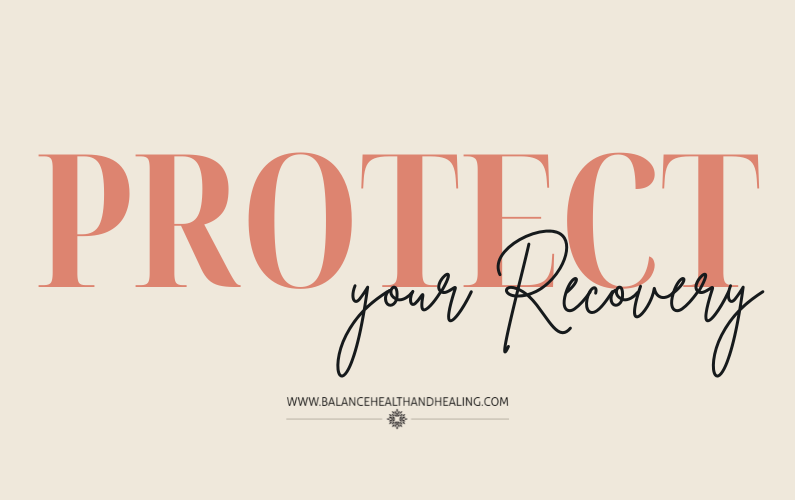A phrase I often repeat with my clients is “Protect your recovery.” Picture it like this: when you go to a museum to see artistic masterpieces, you see all kinds of protection set up to keep the artwork safe and in lasting good condition. UV-filtering windows, temperature- and humidity-controlled rooms, velvet ropes to help people keep their distance from the art, and anti-theft systems are all in place to preserve the artwork. Likewise, your recovery is a precious and hard-earned treasure that deserves protection.
 One of the most important parts of protecting your recovery is having a schedule that safeguards you against slipping into unhelpful patterns. Doing your best to create a daily schedule that protects your recovery is essential to making your recovery last. Here are a couple of practical ways you can do this:
One of the most important parts of protecting your recovery is having a schedule that safeguards you against slipping into unhelpful patterns. Doing your best to create a daily schedule that protects your recovery is essential to making your recovery last. Here are a couple of practical ways you can do this:
1. Prioritize meal times and snack times like you would prioritize a job interview.
If you had an interview for a job you really wanted or needed, how would you schedule your day? Would that interview be high or low on your priority list? High, of course. You’d probably make sure nothing got in the way of you being on time, prepared, and present for that interview. In eating disorder recovery, you must prioritize meals and snacks like you would a job interview. Your #1 job, especially in the beginning stages of recovery, is to nourish your body consistently. If other parts of life start to take precedence over meal and snack times, making progress in recovery will be much harder.
If activities or commitments are getting in the way of your meals or snacks, work with your support system to find ways to stay consistent, either by eating meals during those activities, or shifting your schedule so nothing gets in the way. Set reminder alarms in your phone, cancel plans that would cause you to skip a meal, bring food with you everywhere, ask your professors for permission to step out and eat a snack during class, etc. That might sound intense, I know, but your recovery is worth protecting. And rest assured, as you make progress in recovery, more flexibility can come as you learn to respect and respond to your body’s needs consistently.
those activities, or shifting your schedule so nothing gets in the way. Set reminder alarms in your phone, cancel plans that would cause you to skip a meal, bring food with you everywhere, ask your professors for permission to step out and eat a snack during class, etc. That might sound intense, I know, but your recovery is worth protecting. And rest assured, as you make progress in recovery, more flexibility can come as you learn to respect and respond to your body’s needs consistently.
2. Get serious about your sleep habits.
Sleep might not seem like a recovery tool at first glance, but healthy sleep habits are an important part of protecting your eating recovery. Getting enough rest can help you manage emotions, and use healthy coping skills instead of turning to your eating disorder. Not getting enough sleep sets you up to be more susceptible to anxiety and depression symptoms, as well as eating disorder urges.
One of the most important parts of healthy sleep is setting a consistent wake time and bedtime, even on the weekends (see https://sleepeducation.org/healthy-sleep/healthy-sleep-habits/ for more info). Having a consistent sleep schedule helps your body get better quality sleep, and also makes scheduling meals and snacks easier. Getting good sleep can be tough for a number of reasons, especially if you are battling health issues in recovery, dealing with anxiety or depression, have a variable work schedule, are in school, or have young kids (and the list goes on). Sleep might not ever be 100% in your control (if only it could be! I have two little kids and haven’t slept through the night consistently in over 5 years!), but do your best to protect your recovery process by improving your sleep habits.
There are many ways to protect your recovery, and your daily schedule is one of them. Your eating disorder recovery is a precious, intricate masterpiece made up of hard-earned triumphs, meaningful struggle, and priceless effort. Every piece of your recovery is worth protecting.

